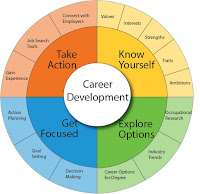 |
| Pic from www.Amazon.co.uk |
by Anthony Robbins ( set of 5 CDs)
The Power To Shape Your Destiny will become your best ally as
you use it to realise what you really want from your life.
The
first thing here is to have clear in your mind: what do you really really really
want?
Then, whether
you want to advance your career, lose weight, improve your relationships, see
the world, or just have time to pursue your favourite hobby, this program will
show you what has been holding you back in the past, and help you to achieve a break
through.
Anthony
Robbins understands the struggles and frustrations that can accompany any
attempt to improve and grow. He also knows the excitement and fulfillment
that comes from actually reaching your goals and he can teach you how to shape
your future through the power of purposeful goals by tapping into qualities
that you already have inside of you.
What
will you learn:
- How one simple exercise, when practiced for 20 minutes a day, can make you biggest dreams happen. This exercise can help you wiping out fear, procrastination, worry, anger, bad habit, or obstacle to achievement.
- How a certain quality you already possess can eliminate all your bad habits, and how that same quality can drive you to establish a new level of excellence for your life.
- How to identify the primary motivator in your life and modify it so it serves you.
- How to improve your decision-making system and your nervous system so you naturally attract and create a great destiny
- Powerful decision making skills that help your body and your mind actually create solutions
 |
| Pic from www.linkedin.com |
Anthony
Robbins will give you the skills and motivation you need to make your life extraordinary and this program will give you that extra boost to put you
over the top.
Remember though 2 very important things:
- Like building muscles ( or becoming an athlete) you can't go to the gym once and except the muscles to suddenly appear, you need to do it regularly, the same is applicable here. Repetition is the key to mastery.
- Knowledge is not power, is potential power. It is what you do with the knowledge that is important. Listen to the CDs and apply apply apply!!!














